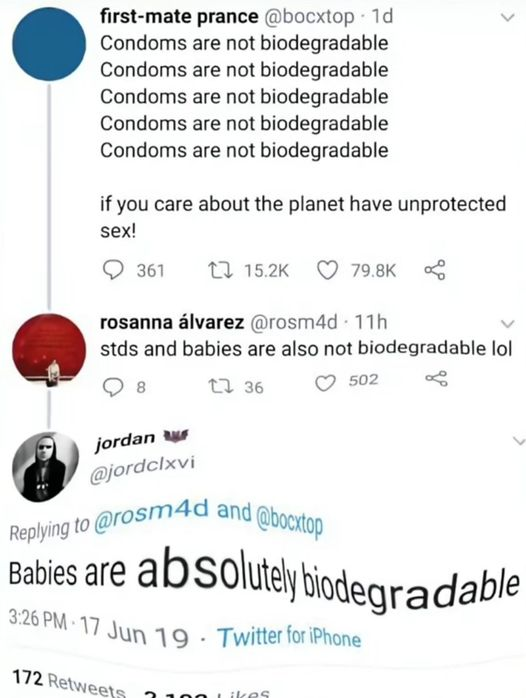this post was submitted on 08 Sep 2024
1059 points (97.1% liked)
Science Memes
10923 readers
1881 users here now
Welcome to c/science_memes @ Mander.xyz!
A place for majestic STEMLORD peacocking, as well as memes about the realities of working in a lab.

Rules
- Don't throw mud. Behave like an intellectual and remember the human.
- Keep it rooted (on topic).
- No spam.
- Infographics welcome, get schooled.
This is a science community. We use the Dawkins definition of meme.
Research Committee
Other Mander Communities
Science and Research
Biology and Life Sciences
- [email protected]
- [email protected]
- [email protected]
- [email protected]
- [email protected]
- [email protected]
- [email protected]
- [email protected]
- [email protected]
- [email protected]
- [email protected]
- [email protected]
- [email protected]
- [email protected]
- [email protected]
- [email protected]
- [email protected]
- [email protected]
- [email protected]
- [email protected]
- [email protected]
- [email protected]
- [email protected]
- [email protected]
- !reptiles and [email protected]
Physical Sciences
- [email protected]
- [email protected]
- [email protected]
- [email protected]
- [email protected]
- [email protected]
- [email protected]
- [email protected]
- [email protected]
Humanities and Social Sciences
Practical and Applied Sciences
- !exercise-and [email protected]
- [email protected]
- !self [email protected]
- [email protected]
- [email protected]
- [email protected]
Memes
Miscellaneous
founded 2 years ago
MODERATORS
you are viewing a single comment's thread
view the rest of the comments
view the rest of the comments

aren't sheep about as bad as cows for the climate?
I don't think so. But I think that that's going to vary a lot based on how you want to measure "badness for the climate".
My instinct is to look at Feed to Gain Ratio, which is the measure of food eaten to weight gained. This will vary animal to animal based on the animal's purpose (meat cows vs dairy cows, meat lambs vs wool sheep, etc) and the type of food they're fed.
Still, there are reliable bands for estimating for each animal. According to This Article, it looks like sheep can fall into a 4:1 to 6:1 ratio while cows are closer to 12:1 (this is a bit higher than I was taught in high school biology, but not by much). Of course, the higher these numbers, the "worse" the animal is for the environment.
They might have been asking about methane production, that's a big topic for cattle because it's a very potent greenhouse gas and having a lot of cattle produces a lot of methane - and it's a byproduct of how their digestive systems work and all ruminants, sheep included, have that problem to some degree.
I wasn't able to find a definitive answer, but per animal sheep aren't as bad, but it's due to their smaller size and if western countries kept eating the same amount of meat but ate more sheep (due to it being cheaper from the demand for sheep condoms, lol) instead of beef I'm not sure it would be better. (Replacing chicken with sheep would definitely be worse though.)
So what I'm hearing is that we just need to selectively breed people to have smaller penises so we can just use chicken intestines for condoms instead?
About as bad as any of the animals that can eat grass, wild or farmed